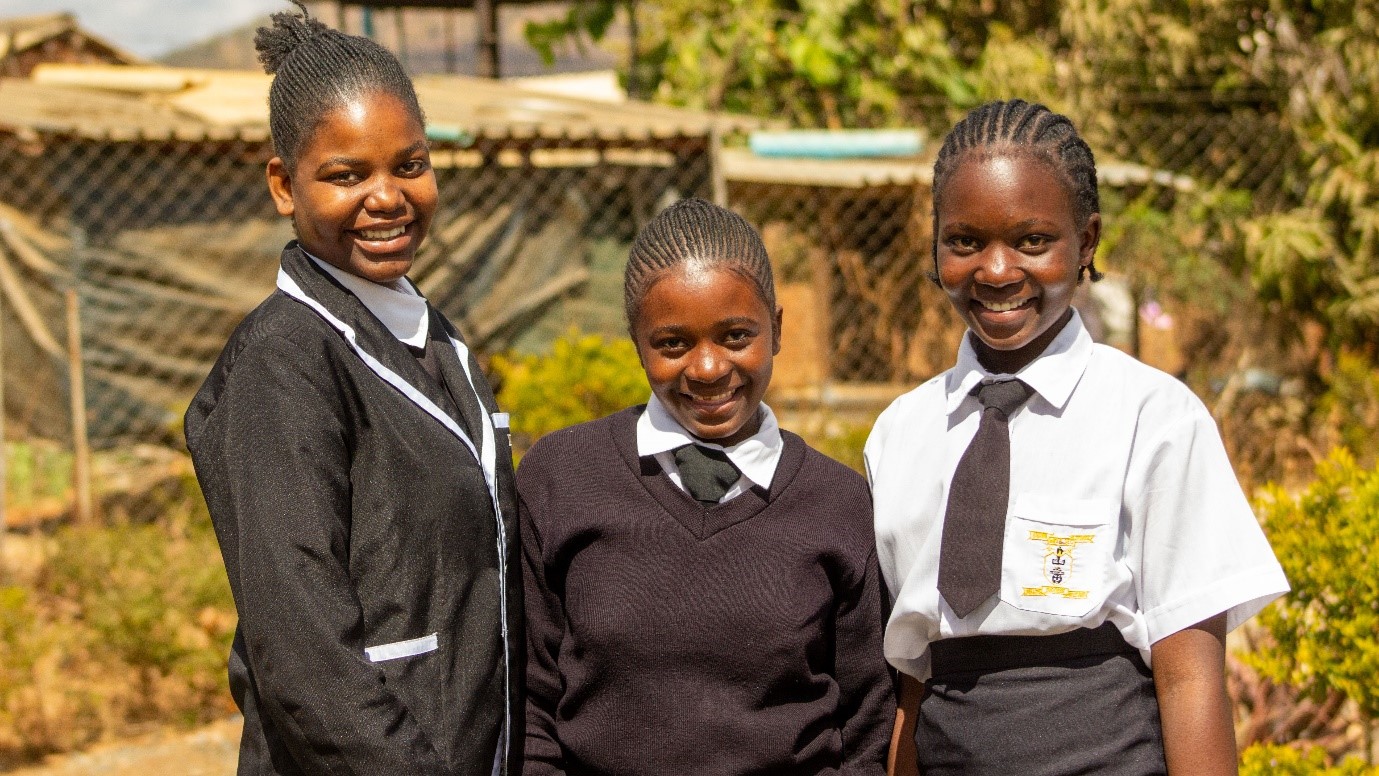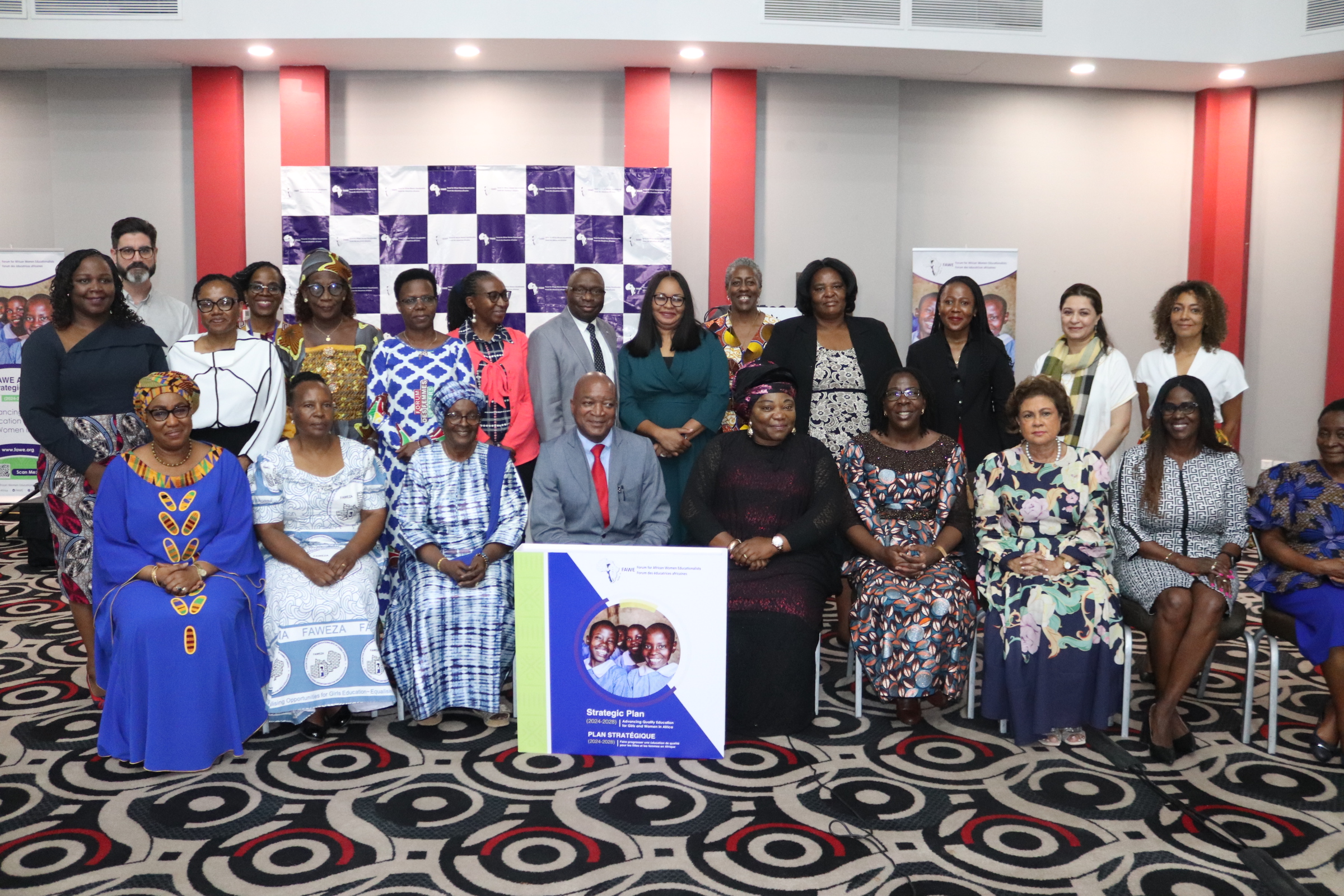By FAWE Zimbabwe
The Forum for African Women Educationalists (FAWEZI) and Action Aid Zimbabwe (AAZ) conducted a Girls in Leadership Training for in school girls, teachers and School heads. The training was supported by a girl child mentor who led the facilitation in line with the objectives.
Objectives were to:
- Develop awareness on relevant leadership skills amongst learners.
- Cultivate the voice and power of girls in line with Sexual and Reproductive Health, and Rights (SRHR) and Sexual and Gender Based Violence.
- Improve confidence and communication skills for girls.
- Provide career guidance for girls and strengthen supportive relationships between Tuseme mentors and the Tuseme club members
In school girls lack effective communication, confidence, mentorship and leadership skills to help them express themselves including speaking out against their challenges. During previous club activities supported by FAWEZI and AAZ the learners indicated lack of age-appropriate information on Sexual and Reproductive Health and Rights (SRHR) and Sexual and Gender Based Violence and various life skills was a challenge for them.
The weak socio-economic environment for most families in the project districts has limited the family’s capacity to support quality educational access and other personal development trainings for girls which in turn increases their vulnerability to exploitation and abuse.
One of the districts, Chitungwiza is home to over 500 000 people and reportedly faces issues of drug abuse, teen pregnancies, school dropout and sexual abuse among girls. On the other hand, Shamva District is dominated by illegal mining activities resulting in large numbers of men who lure school girls into sexual relations using money. Most of these girls come from poor families, walk long distances to school and even attend school whilst hungry. The illegal gold miners take advantage of the situation, even convincing parents to marry off or accept bride price for in school girls.
2021 to date 2 project schools the schools Madziwa Mine and Wadzanayi secondary have lost 50 girls to pregnancies. This 2023 two of the two schools have a total enrolment of 805 girls, who are vulnerable to such incidences. Currently, Madziwa Mine Secondary school has two pregnant girls.
Lindiwe Phiri a student at Wadzanayi Secondary School, Shamva District hailed the training saying that it was a confidence booster for her.
“I learned how to be a better advocate for myself and other girls. I’m not afraid to speak up for what I believe in. I am more confident now. I know that I can make a difference at my school.” Said Lindiwe
Another student, Belinda Miruka from Seke Mhuriimwe Secondary School, Chitungwiza District expressed her gratitude for the training and how her thoughts about leadership had been corrected.
“I used to think that girls couldn’t be leaders, but now I know that I can be anything I want to be. I learned how to set goals and achieve them. I’m now more determined than ever to make my dreams a reality. I can now speak up for myself and my rights.” Said Miruka.
The girl child mentor, Chinga Govhati who facilitated the training also hailed the training.
“I have seen firsthand the transformation that can happen when girls are given the opportunity to learn and grow as leaders. They become more confident, more assertive, and more willing to stand up for themselves and their rights. They also become more engaged in their communities and more committed to making a difference,” said Govhati
She also shared about the importance of such trainings and how proud she was to be the facilitator.
“Girls in leadership trainings are essential for creating a more equitable society. They help to break down gender stereotypes and empower girls to reach their full potential. I am proud to be a facilitator of this one and I hope to see positive impact on the lives of young women from this.” Said Govhati
Employing Bronfenbrenner’s ecological systems theory (1979) that views child development as a complex system of relationships affected by multiple levels of the surrounding environment, from immediate family and school settings to broad cultural values, laws, and customs, it was established that girls from the project schools lacked awareness on relevant leadership skills amongst learners. Such trainings therefore, increase confidence and leadership skills, Improve communication and problem-solving skills, Greater awareness of gender equality issues, Enhanced peer to peer and mentorship opportunities.






Leave A Comment